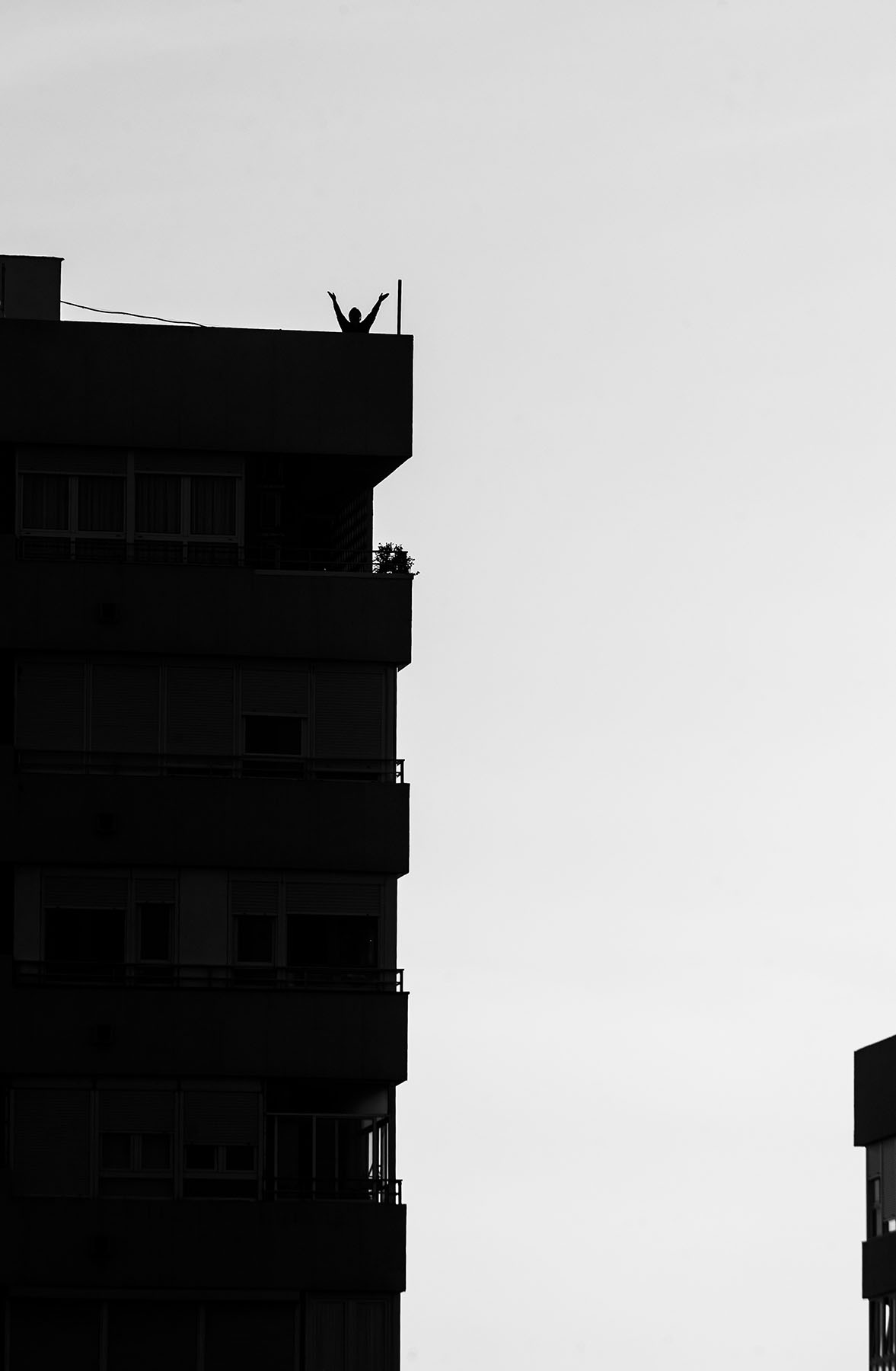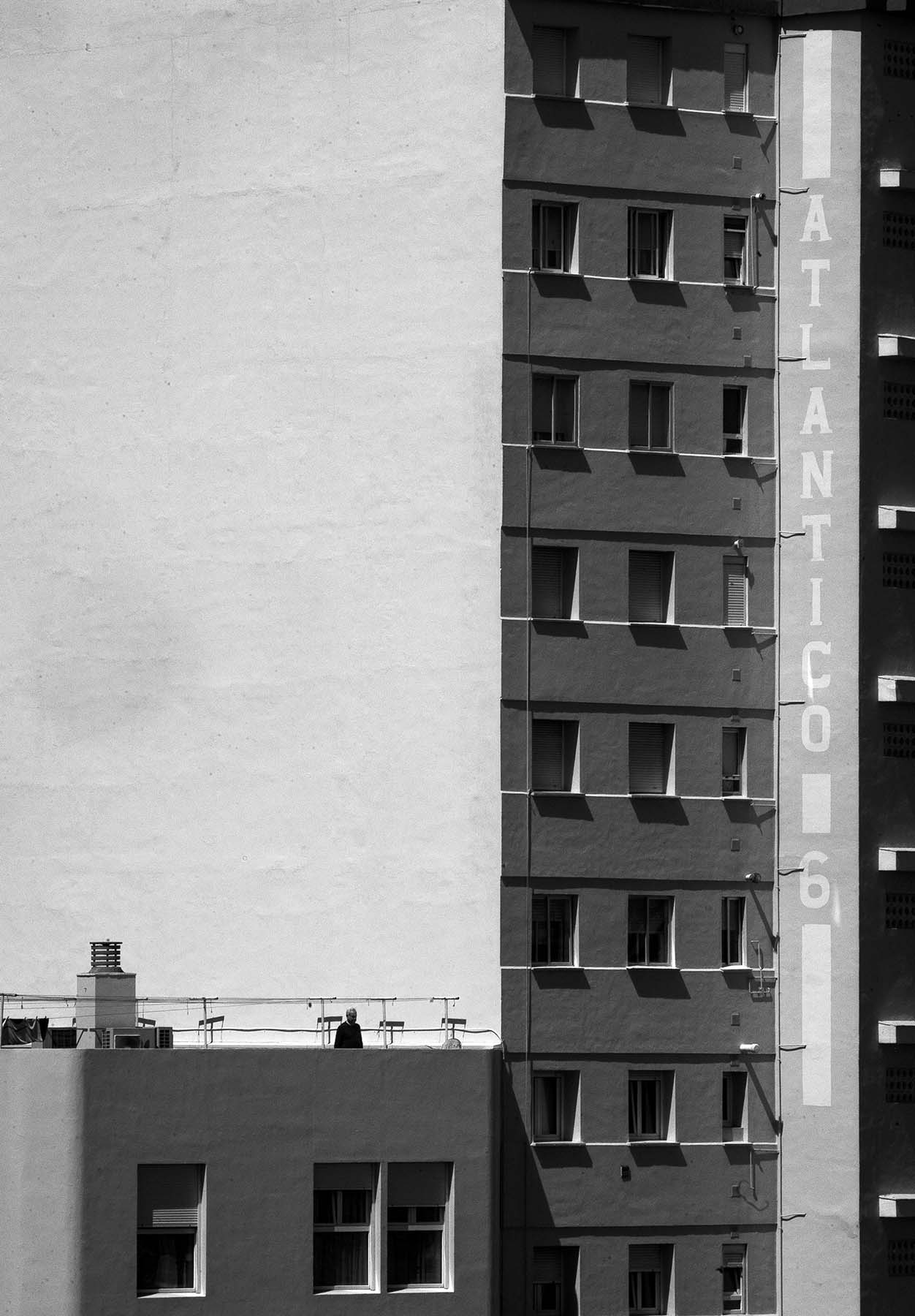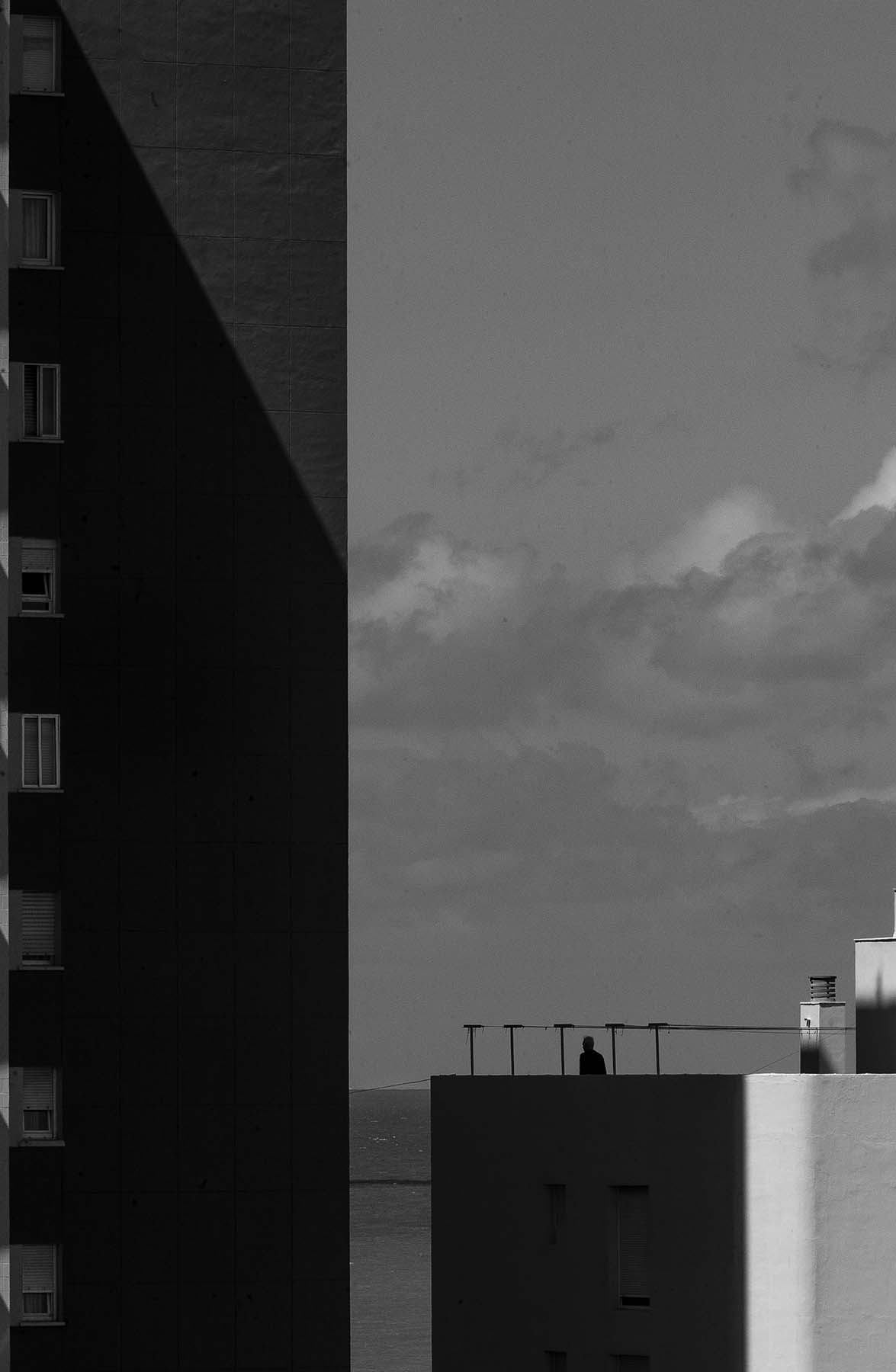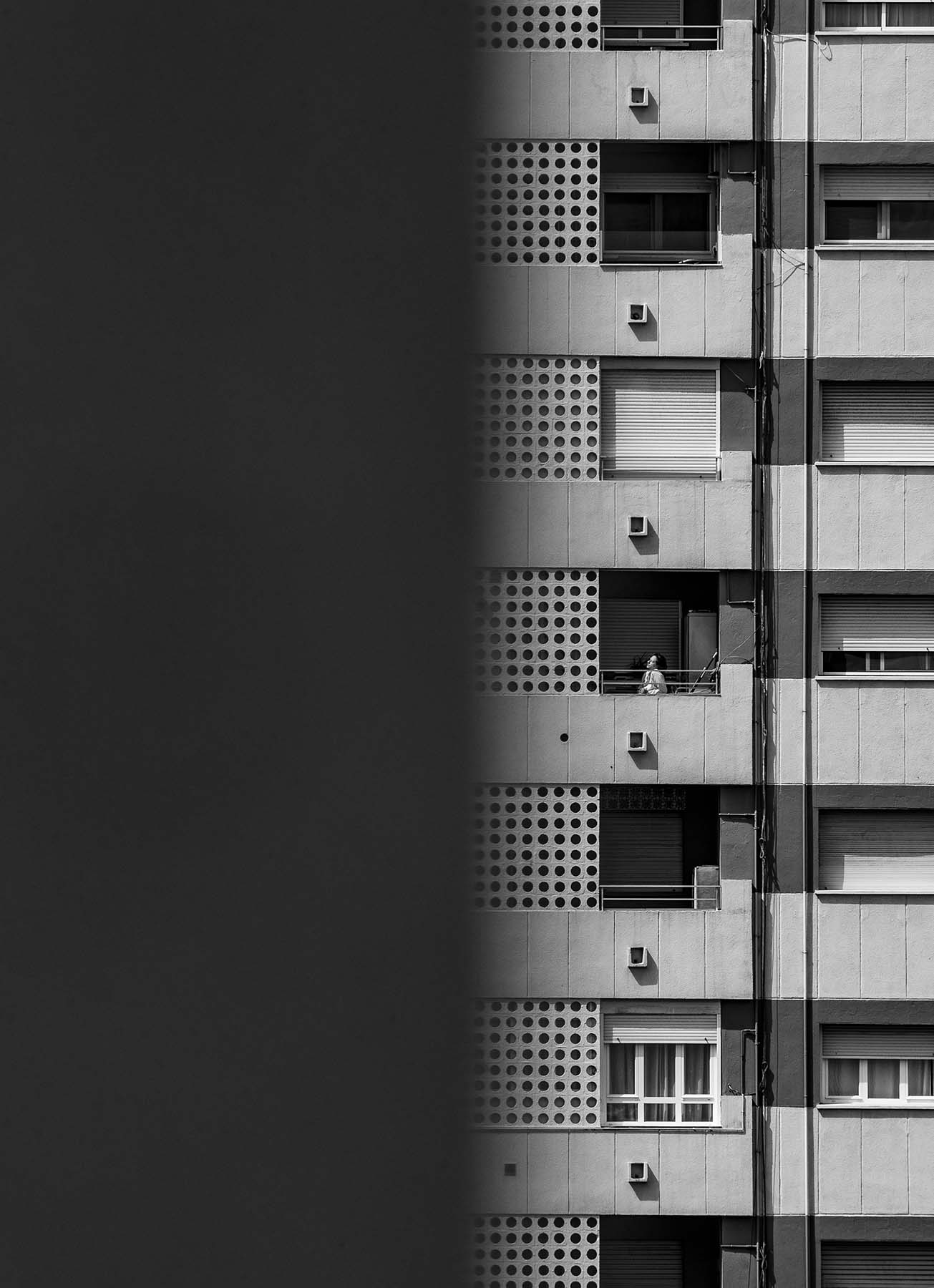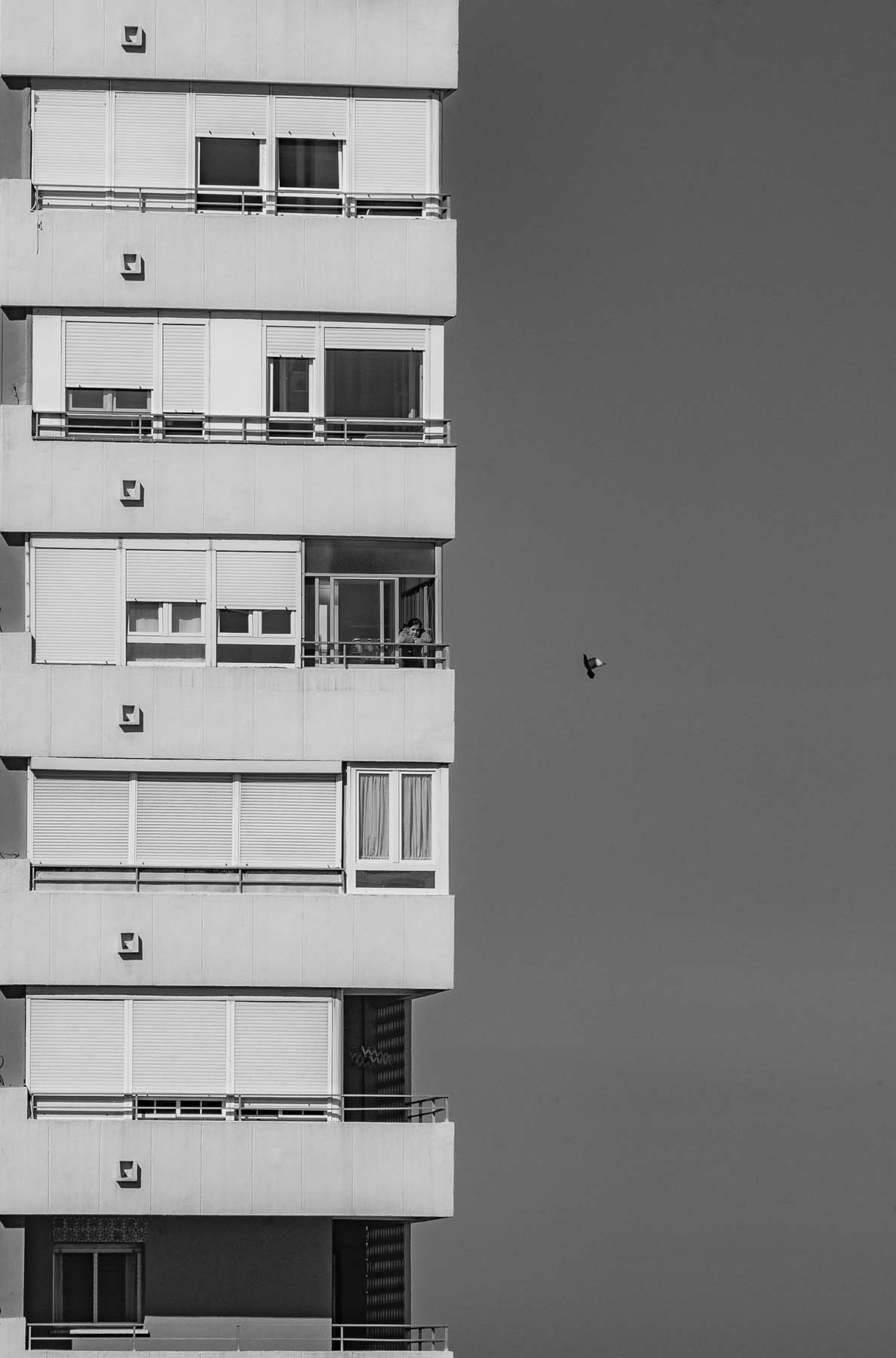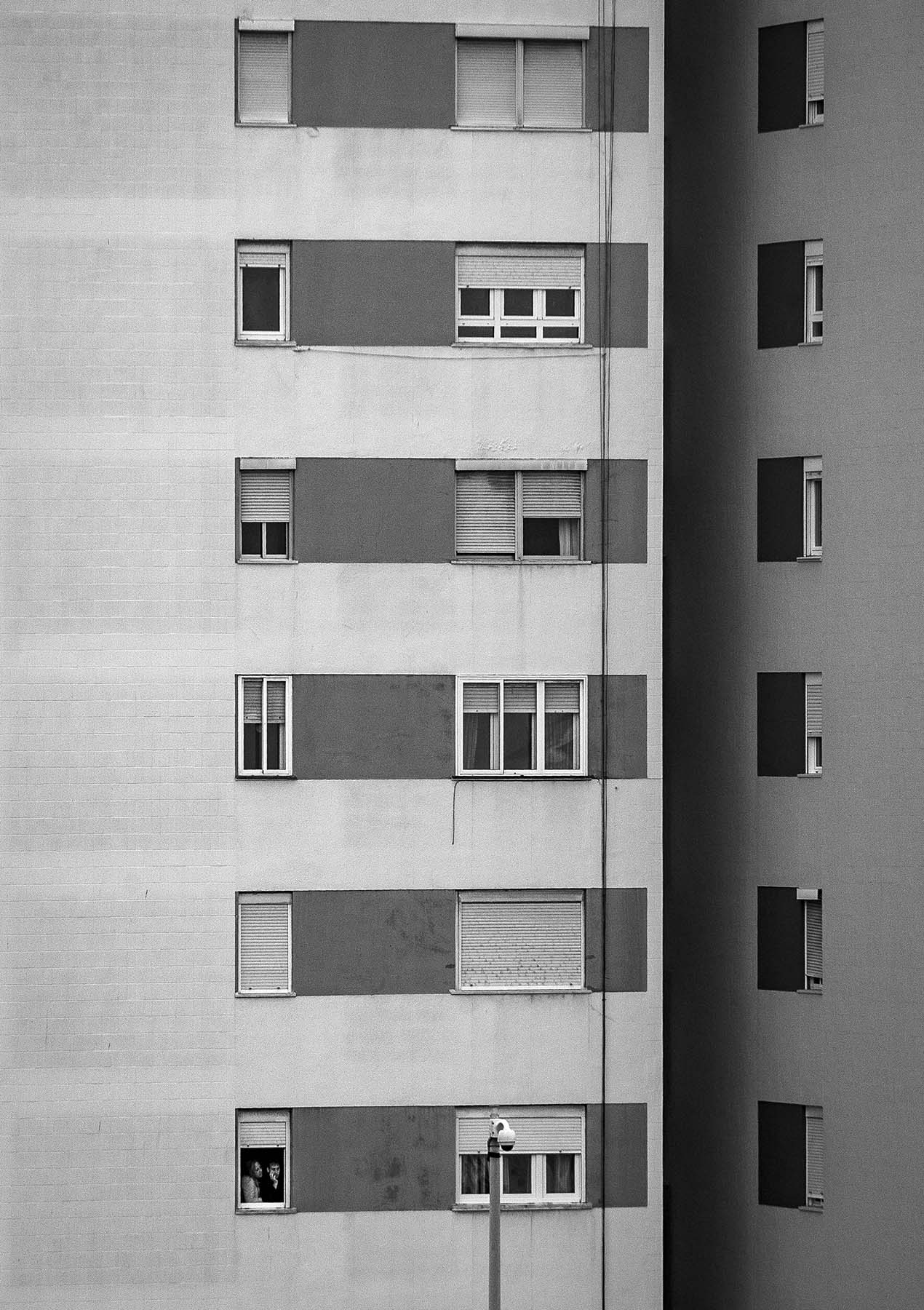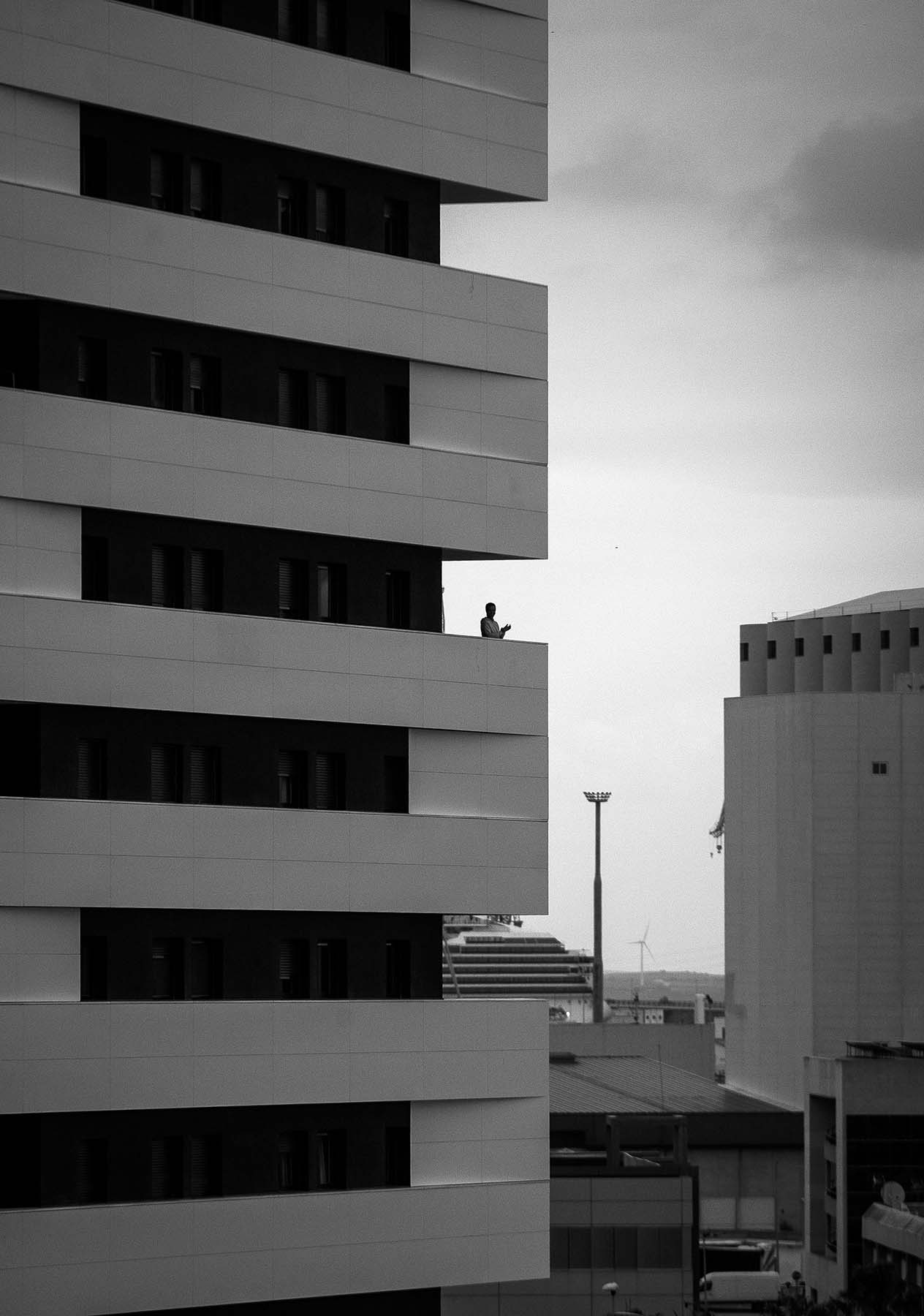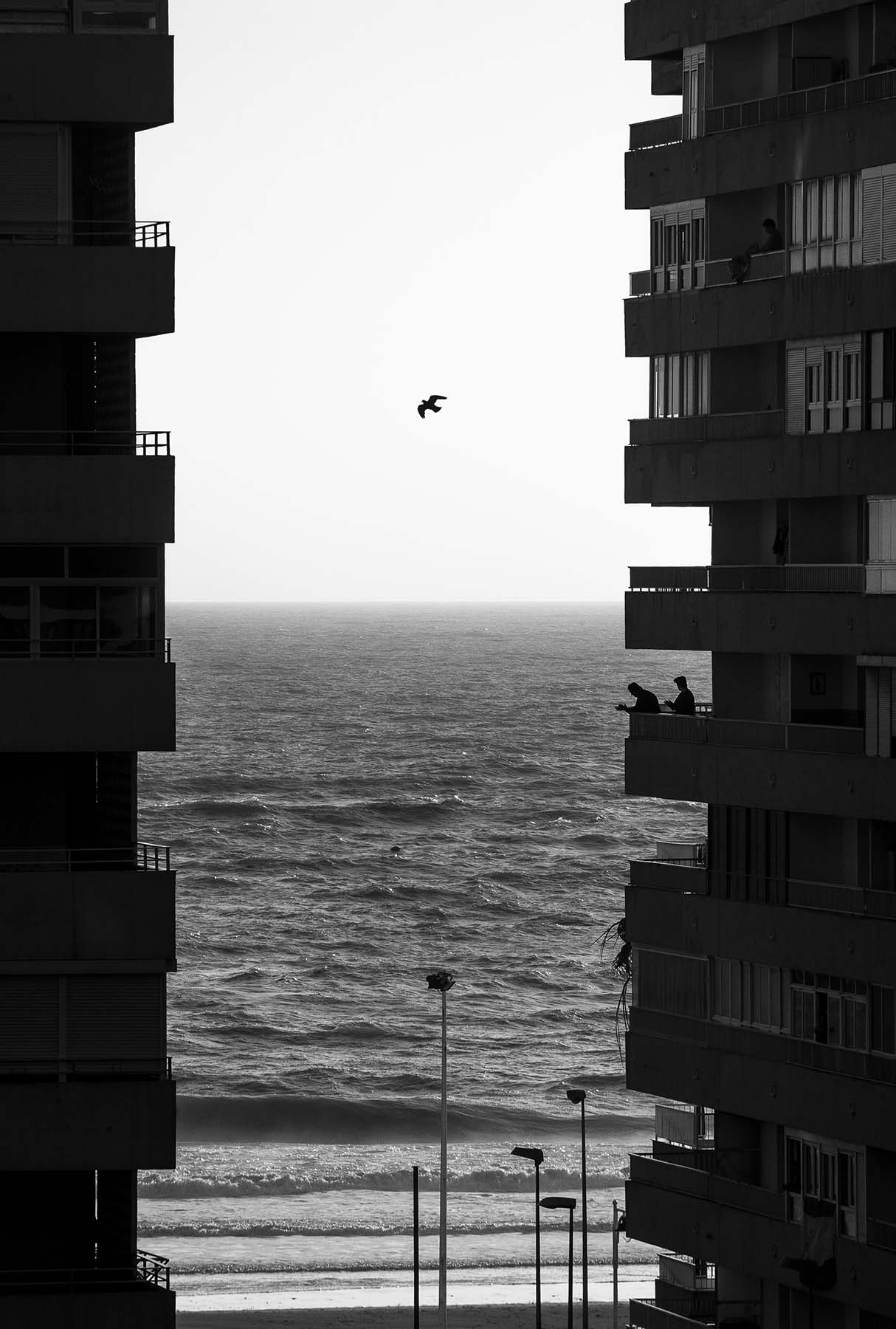Soledad
(1er. Premio Reportaje Internacional – Salón de Fotoperiodismo de la República Dominicana)
(english below)
Probablemente el sentimiento más habitual durante el encierro pandémico de marzo y abril y del que posiblemente poco se habla, al menos no directamente, sea el de soledad; porque el reclamo de salir a caminar, hablar, tocarse, es una forma de decir que se está solo. Que sea una petición colectiva no lo hace menos cierto. Que lo pidan miles y a la vez, no le resta intensidad, no llena los salones, ni las estancias, ni los balcones o azoteas. No nos hace compañía, no en el sentido literal de la palabra.
La actual pandemia nos ha revelado la fragilidad de algunos conceptos y convicciones que dábamos por resueltas. Tanto tiempo libre y en tan poco espacio -algunos- invitan a reflexionar una y otra vez sobre los temas que tan bien se nos da solapar con los quehaceres del día a día. Que el 86% de los españoles piense que la gente no se preocupa lo suficiente por los demás y el 12% pasa todo el día absolutamente solo; o que según los estudios de los últimos meses el daño que ha hecho el aislamiento durante la pandemia tendrá reflejo en lo físico y en lo psicológico sobretodo en las personas mayores debería llevarnos a pensar si lo estamos haciendo bien ahora que no estamos encerrados.
Mucho me temo que como animales de costumbres que somos seguiremos pendientes de las UCIs y los contagios, de las últimas medidas por comunidad y ahora por supuesto, de la vacuna; y nos olvidaremos de que la pandemia tiene varias caras, que la soledad provocada por el encierro es una de ellas y actúa a largo plazo sin que lo percibamos. La vacuna puede curar la enfermedad, pero solo a nivel físico.
Estuve fotografiando a personas que veía cada día desde mi ventana, siempre las mismas, a la misma hora, como un ritual. Quizás era también mi excusa para sentirme acompañado.
***
Loneliness
(1st. Prize International Reportage – 2021 Photojournalism’s Expo of the Dominican Republic)
Probably the most common feeling during the March and April pandemic confinement and of which possibly little is said, at least not directly, is loneliness; because the claim to go for a walk, to speak, to touch, is a way of saying that oneself is alone. That it is a collective request does not make it less true. That thousands ask for it and at the same time, it does not detract from the intensity, it does not fill the halls or the balconies and roofs. We do not feel accompanied, not in the literal sense of the word.
The current pandemic has revealed to us the fragility of some concepts and convictions that we took for granted. So much free time and in so little space -some- invite us to reflect over and over again on the issues that we overlap so well with day-to-day chores. That 86% of Spaniards think that people do not care enough about others and 12% spend the whole day absolutely alone; or that according to studies in recent months, the damage that isolation has done during the pandemic will be reflected physically and psychologically, especially in older people, it should lead us to wonder if we are doing well now that we are not locked up.
I am very afraid that as animals of customs that we are, we will continue to monitor ICUs and infections, the latest measures by community and now, of course, the vaccine; and we will forget that the pandemic has several faces, that the loneliness caused by the confinement is one of them and acts in the long term without our perceiving it. The vaccine can cure the disease, but only on a physical level.
I was photographing people that I saw every day from my window, always the same ones, at the same time, as a ritual. Perhaps it was also my excuse to feel accompanied.

